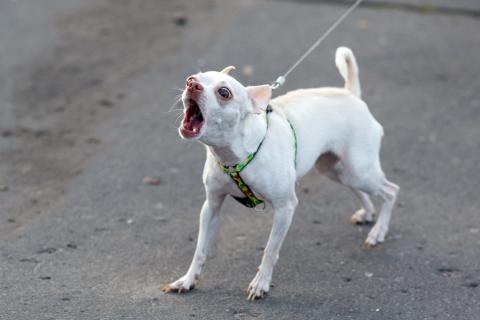
Published on August 19 by Lisa
Dog reactivity is one of the most common behavioral issues that pet owners face, yet it remains one of the most misunderstood. If you’ve ever dealt with a reactive dog, you know how stressful, frustrating, and even embarrassing it can be. But there’s more to dog reactivity than meets the eye, and understanding the truth about it is the first step toward managing it effectively.
Reactivity in dogs generally refers to an exaggerated response to certain stimuli, like other dogs, people, or specific environments. This can manifest in various behaviors, including barking, lunging, growling, or even snapping. It’s important to note that reactivity isn’t the same as aggression. While it can sometimes lead to aggressive behaviors, a reactive dog is often acting out of fear, anxiety, or frustration rather than a desire to harm.
Understanding why a dog is reactive is crucial to addressing the issue. Reactivity can stem from several factors, including:

Here’s the truth that many trainers won’t tell you: managing dog reactivity isn’t about “curing” the behavior. In many cases, reactivity can be managed and reduced, but it may never go away entirely. And that’s okay.
It’s important to set realistic expectations. Training a reactive dog takes time, patience, and consistency. There’s no overnight solution, and the journey may have its ups and downs. The goal isn’t necessarily to make your dog perfectly calm in every situation, but to help them cope better and respond more appropriately to triggers.
While reactivity may not be something you can completely erase, there are steps you can take to manage it:

Dealing with a reactive dog can be challenging, and it’s okay to seek professional help. A qualified dog trainer or behaviorist can provide you with a tailored plan that addresses your dog’s specific needs. They can also offer support and guidance, helping you stay on track during the training process.
The truth about dog reactivity is that it’s a journey, not a destination. It’s about progress, not perfection. Every small step forward is a victory, and every setback is an opportunity to learn and grow. Most importantly, remember that you’re not alone—many dog owners face the same challenges, and with patience and persistence, you and your dog can navigate this journey together.
Reactivity may not be something you can completely fix, but it’s something you can manage. By understanding the truth about dog reactivity, you can set realistic expectations, develop a solid plan, and, most importantly, strengthen the bond between you and your dog.
Discover More Content





